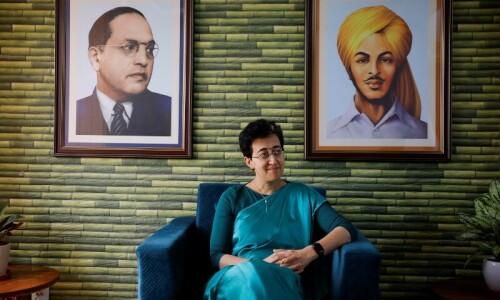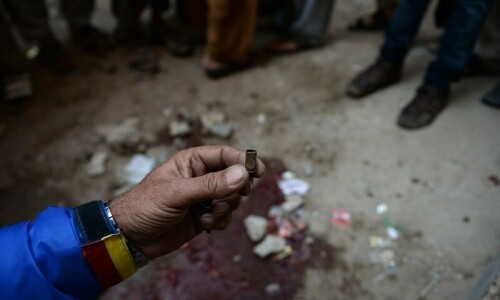PARIS: Farming practices must change to confront soaring food prices that threaten to drive millions of poor people around the world into even deeper poverty, said a new study
“Business as usual is no longer an option,” the International Assessment of Agricultural Science and Technology for Development will say in a report, according to a statement from Unesco, where the study will be presented.
The study group was formed in 2002 by the United Nations Foods and Agriculture Organisation and the World Bank.
Its findings were to be released here at a moment of mounting alarm at the social and political upheavals that world leaders fear could be triggered by rising food prices.
The IMF and the World Bank in weekend meetings in Washington appealed for measures to avert a global food crisis. European Union farm ministers were to confront the issue at a meeting later Monday in Luxembourg.
Basic foodstuff prices have all risen sharply in recent months, sparking violent protests in many countries, including Egypt, Cameroon, Ivory Coast, Mauritania, Ethiopia, Madagascar, the Philippines and Indonesia.
“Based on a rough analysis, we estimate that a doubling of food prices over the last three years could potentially push 100 million people in low-income countries deeper into poverty,” World Bank president Robert Zoellick warned on Sunday.
The Unesco statement here said that since March 2007 prices for soya beans have risen 87 per cent and those for wheat 130 per cent at a time when global grain stores are at their lowest levels on record.
It attributed the trend to increased demand in emerging market powerhouses China and India as well as the alternative use of maize and soya beans for biofuels.
Unesco said the report to be released will urge that agricultural science pay greater attention to safeguarding natural resources and to promoting “agro-ecological” practices, such as the use of natural fertilisers and traditional seeds and reducing the distance between the farm and the consumer.—AFP














































Dear visitor, the comments section is undergoing an overhaul and will return soon.